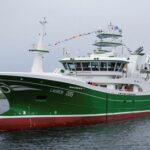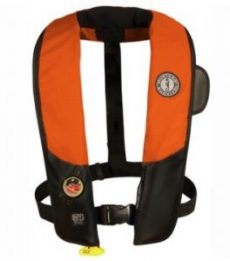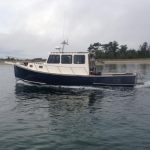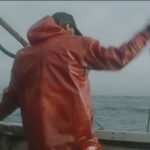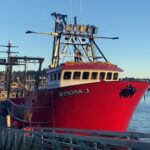Tag Archives: quotas
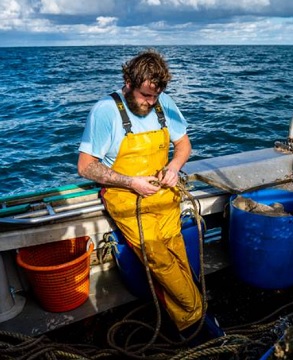
Is the UK really allowed to catch more fish because of Brexit?
British politicians earlier this week praised the results of the EU-UK 2023 Brexit fishing quota negotiations, saying the UK will be able to catch 30,000 more tonnes of fish than if the island nation had remained within the European bloc. The UK fishing industry will be allowed to catch 140,000 tonnes of fish in 2023, instead of 110,000 tonnes if Brexit had not happened, Fisheries minister Mark Spencer said on Tuesday. The amount of fish that the UK can catch in 2023 has actually remained the same or similar to previous years. So why are politicians latching on to it now? >click to read< 08:09
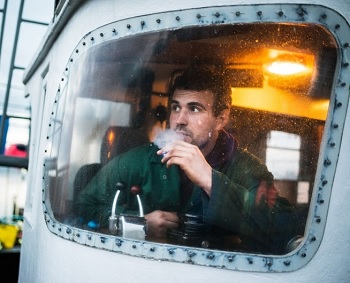
Brexit, an “ocean of possibilities”? British fishermen mixed
A heavy weather warning was announced this weekend in the North Sea. Rain and wind are already sweeping Peterhead and its pink granite dwellings. Located in the east of Scotland, the UK’s largest fishing port in terms of fish caught sees its boats returning for shelter. Except Peter Bruce, who will stay at sea until the last moment. ” We use so much gasoline to reach the whitefish fishing grounds that it is not financially worthwhile to come back for six to eight days.”,,, While Peter Bruce usually fills his holds with 50 tonnes of fish, he sometimes has to make do with 35 tonnes. Particularly since the 1is January. >click to read< 14:53
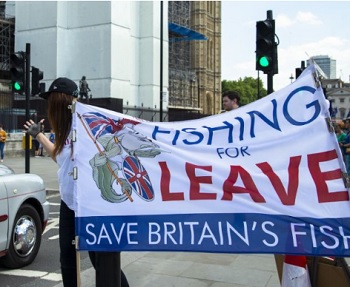
Brexit: how it started, how it’s going
The European Parliament votes Tuesday on the EU’s divorce settlement with Britain, the 1,246-page Trade and Cooperation Agreement. The deal averted tariffs or quotas on almost all goods produced in the UK and EU. The new standards and attendant bureaucracy are having an impact on trade. UK exports of live mussels, cockles, oysters and other shellfish are no longer allowed to enter the EU. Most come from Scotland, and the industry says it is staring at collapse. Britain’s government, however, says the coronavirus pandemic has been the bigger factor affecting trade since the Brexit deal took effect. >click to read< 07:32
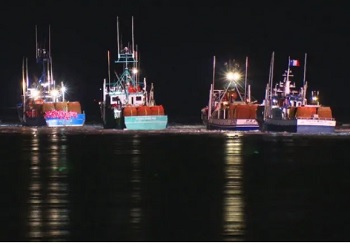
Crab fishing season off to early start on the Acadian Peninsula
New Brunswick’s snow crab fishers have begun their season. At the wharf in Shippagan, boats prepared to take to the Gulf of Saint Lawrence late Friday despite frigid temperatures and the presence of ice in some places. The season officially began at midnight. For Capt. Renald Guignard, it marked the continuation of a family tradition. The Acadian Peninsula received help from icebreakers from the Canadian Coast Guard and contracted boats to allow access to the waters before endangered North Atlantic right whales arrive. >click to read< 17:30
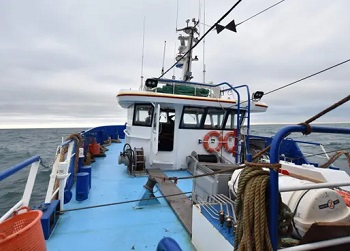
Catches, quotas and communities: the key fisheries issues at stake
Only a few hours after accession talks had begun on 30 June 1970, the UK government was told that a common fisheries policy had been agreed by the original six members of the community. It was a fait accompli. The UK had to hand over equal access to its waters and the catch quotas for each country were fixed on the basis of the recorded catches of the various national fleets between 1973 and 1978. It led to some very unpalatable outcomes, including those in the Channel, where the UK’s share of the cod quota stands at 9%, whereas France’s share is 84%. Today, EU fishing fleets catch 675,000 tonnes of fish in UK waters – 60% of the total caught in the UK sector. British fishermen catch just 88,000 tonnes, or 16% of the fish taken in EU waters. >click to read< 13:39
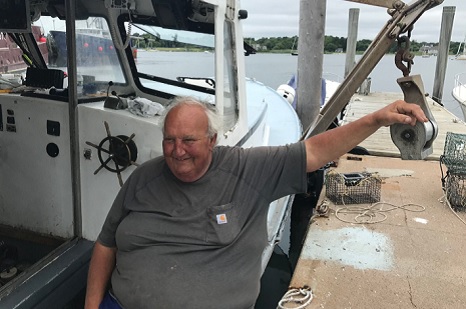
Bob Guzzo Talks Quotas, Offshore Wind, Coronavirus, and Fishing out of Stonington, Connecticut
“We’re giving up traditional fishing grounds that we’ve had for hundreds of years, that have fed the country, that are now going to light a light bulb and it’s not going to be worthwhile,” Guzzo said of the proposed wind farms located in federal waters. The location of the wind farms also destroys longtime fisheries, said Guzzo. “They’re taking away places that we’ve fished for this country over hundreds of years and we’re losing that ground,” he said.,, Quotas and Coronavirus, “I got tired of throwing fish overboard, I could never stand it. I started too long ago and never had to do this. The way they make you fish today is a crime,” >click to read< 08:01
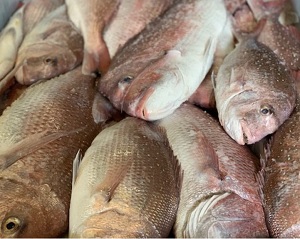
Fears of corporate takeover as SA Government seeks to put quotas on fisheries
Converting commercial fishing into a quota system could leave the industry open to corporate takeover, industry stakeholders fear, as the State Government seeks to tighten the net on fisheries with major reforms. SA Primary Industries Minister Tim Whetstone this month outlined key goals of a $24.5 million Marine Scalefish Fishery reform package he hoped to have in place by mid-2021, which would allocate transferable quotas to commercial fishing licenses. Marine Fishers Association executive officer Gary Morgan said the industry was made up of small local fishers who supplied local markets. If allocated quotas were not large enough for them to run a viable business, he said, “the majority wouldn’t have the money to buy additional quota” and could sell up. “Already, there have been companies sniffing around wanting to buy large chunks of quota,” Mr Morgan said. >click to read< 19:08
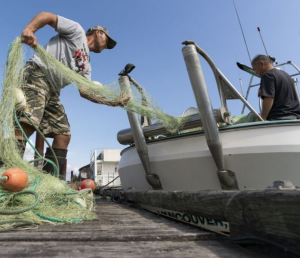
Sweeping reforms to licences, quotas, and equal footing, Standing Committee urges massive overhaul
The committee is recommending sweeping changes to the way commercial fishing licences and quota are owned in B.C. to address concerns of monopolization — including quota ownership by foreign investors who might never have set foot on a fishing boat or in Canada — that has turned commercial fishing in B.C. into “a modern day feudal system.” While commercial fishermen in B.C. applaud the committee’s recommendations, it may not sit well with corporate owners such as Jimmy Pattison’s Canadian Fishing Company, which owns a significant amount of fish quota in B.C. >click to read<12:55
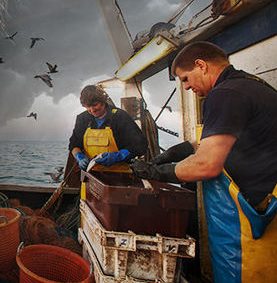
It’s official: EU IS forcing small fleet fishermen out of work with quotas, report says
Policies imposed by Brussels on British fishermen have hugely harmed traditional fishing operations, experts from the University of Kent said. In their paper, researchers from the Kent’s School of Anthropology and Conservation (SAC) stated the EU policies are favouring larger boats and richer owners. As a result, smaller fleets and individuals were pushed out of their livelihood. Professor Douglas MacMillan, one of the researchers taking part in the study, said the CFP focuses too much on fish stock conservation and has no meaningful policy regulations to ensure that quotas for over-fished stock such as tuna are equally shared amongst fishermen. >click to read<
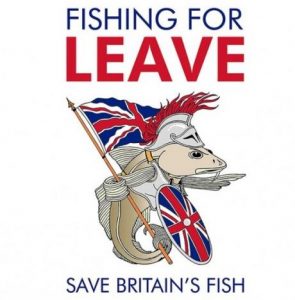
Answering The Question: What’s Fishing For Leave’s Position On Fishing Entitlement?
Fishing For Leave (FFL) are adamant that all repatriated quota is held as a national resource and is divided out to all fishermen in a community. Under the principle of one ton to one boat. If someone doesn’t use their slice it goes back in the pot to be divided again. That is what we’ve represented to the highest levels of government repeatedly and has had some acknowledgement in the white paper. This is in spite of the Scottish Fishermen’s Federation (SFF) insisting all repatriated resources are distributed through the current Fixed Quota Allocation (FQA) system which has facilitated and driven consolidation as the EU CFP quota system failed. >click to read<10:38
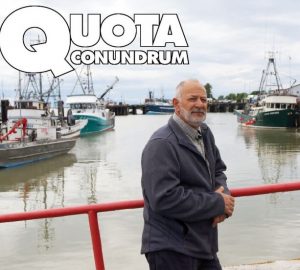
Canfisco hopes to defend quota system at Ottawa committee
Richmond-based Canfisco hopes to present to a new Standing Committee on Fisheries and Oceans examining West Coast fishery regulations come next February, at the latest. Rob Morley, vice-president, production and corporate development at Canadian Fishing Company (Canfisco), told the Richmond News Monday that the present licensing and quota system so often criticized by the likes of independent fishers and environmental groups has merits. There is growing concern — including Liberal MP Ken Hardie, who requested the committee — that licenses and quotas are becoming too expensive to lease and prohibitively expensive to purchase. As such, capital-rich companies and investors are taking fishing profits from community-based fishers. >click to read<08:25

FISH-NL demands Ottawa explain itself in light of massive cuts to caplin quotas
The Federation of Independent Sea Harvesters of Newfoundland and Labrador (FISH-NL) is demanding Ottawa explain itself in light of huge cuts to caplin quotas in the Gulf of St. Lawrence and off eastern and southern Newfoundland and Labrador. “This is a banner year for caplin in the Gulf with the federal government’s own scientists reporting an abundance of fish not seen in years, and yet the quota has been cut by 35 per cent,” says Ryan Cleary, President of FISH-NL. “How does that make sense? It doesn’t.” “At the same time, scientists said in March that the caplin stock off eastern Newfoundland and Labrador was down 70 per cent, but the relatively small commercial fishery isn’t having an impact,” he added. >click to read<11:57
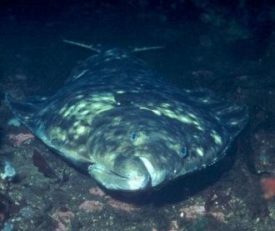
Halibut quotas for 2018 come in slightly lower than expected
The total allowable catch for the 2018 Pacific halibut season in the Gulf of Alaska and Southeast will be set slightly lower than what U.S. commissioners on the International Pacific Halibut Commission had asked for. The National Oceanic and Atmospheric Administration will publish a final rule in the Federal Register Tuesday setting combined charter and commercial quotas in Southeast, area 2C, at 4.4 million pounds. That’s about a 17-percent drop from the total allowable catch in 2017. >click to read<17:39
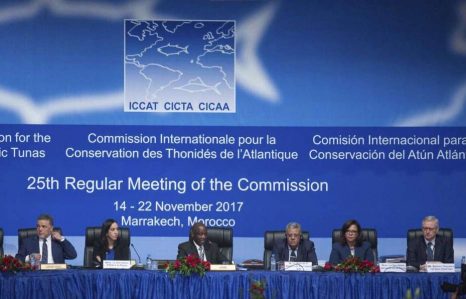
Nations press panel to raise annual Bluefin tuna quotas
Nations fishing the Atlantic Ocean and the Mediterranean Sea have started assessing how much more prized Bluefin tuna can be caught in the next few years amid signs that stocks of the iconic fish are recovering. The 50-nation International Commission for the Conservation of Atlantic Tunas opened its year-end meeting Tuesday in Marrakech, Morocco, facing pressure from nations to allow more Bluefin to be caught after years of cuts. click here to read the story 12:19
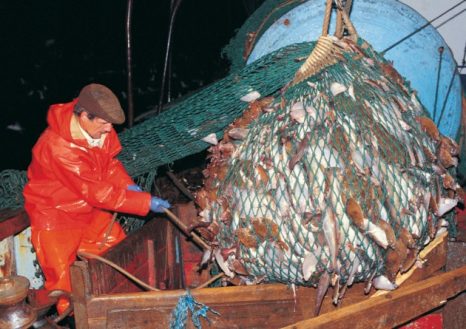
Fishermen fear a catch during negotiations over Brexit
Fishermen around the Kent coast are fearing for the survival of the industry after Brexit as they do not believe the government will deliver a clean break with the EU. The Thanet Fishermen’s Association and Whitstable Fishermen’s Association have thrown their weight behind a 90 page document by Fishing for Leave, an independent campaign aiming for withdrawal from existing EU fishing regulations in order to regain control over the country’s fishing waters and rejuvenate the industry. “When we went into the common market, we had the largest fish stocks and the largest fleet,” explains Mr West, who owns West Whelks on Whitstable harbour. “Now we have the smallest fish fleet and the smallest stocks left as our waters have been abused by other countries. “A lot of people that set the quotas are sitting in an office and haven’t got a clue about how our industry works. We’re told we are allowed to catch haddock, when we haven’t seen a haddock in almost 50 years. Read the story here 12:07
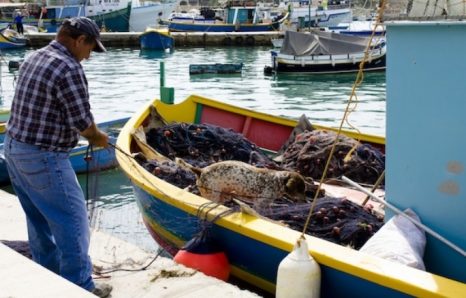
Powerless spectators to the hungry tuna ranchers: the demise of artisanal fishermen
Artisanal fishermen in Malta have become ‘powerless spectators’ to the way the Bluefin tuna fishery industry has been taken over by the large purse seiners and foreign interests in tuna ranching. A long-standing tradition of small-scale fishers that existed since the 1700s, which used hook-and-line methods baited with mackerel, has now given way to the tuna giants, intensive technology and their tuna fattening ranches, commanding prices that can only force small fishers out of business. But this rapid transformation into industrialised fishing was also carried out with the direct blessing of the government in 2001, and since then, the tuna ranching industry has suffocated artisanal fishers. In a field study carried out by the Durrell Institute of Conservation and Ecology at the University of Kent, social scientists met with Maltese fishermen whose livelihoods were irrevocably changed by the advent of industrialised tuna fishing. Read the story here 11:43
Department of Fisheries and Oceans cuts N.L. snow crab quotas for 2016 season
The Department of Fisheries and Oceans has cut the total allowable catch for snow crab in Newfoundland and Labrador this upcoming season by about 13 per cent. Some fishing areas will see quota cuts of more than that — division 3Ps, in the Placentia Bay area, will see a 30 per cent reduction, while most areas of 3K, along the northeast coast, will see a 20 per cent cut. Some areas of 3LNO also face 20 per cent cuts. DFO has set the 2016 total limit at 43,802 tonnes. The first divisions open for fishing on April 4. Link 08:57
this upcoming season by about 13 per cent. Some fishing areas will see quota cuts of more than that — division 3Ps, in the Placentia Bay area, will see a 30 per cent reduction, while most areas of 3K, along the northeast coast, will see a 20 per cent cut. Some areas of 3LNO also face 20 per cent cuts. DFO has set the 2016 total limit at 43,802 tonnes. The first divisions open for fishing on April 4. Link 08:57

































